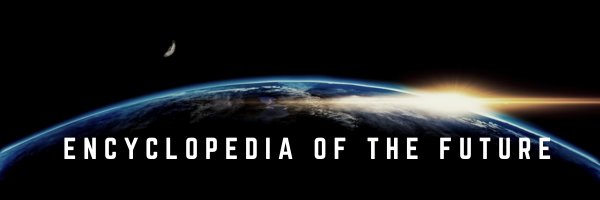Welcome to the Encyclopedia of the Future: Navigating the Technological Revolution! This book is your guide to understanding the forces shaping the 21st century and beyond. We live in an era of unprecedented technological change, where artificial intelligence, biotechnology, nanotechnology, and other advancements are transforming our world at an accelerating pace. This revolution presents both incredible opportunities and daunting challenges, and navigating this complex landscape requires a new kind of literacy – a “futures literacy” that empowers us to think critically, creatively, and strategically about the future.
This encyclopedia is designed to equip you with the knowledge and tools you need to become futures literate. It’s not about predicting the future with certainty, but about understanding the trends, forces, and possibilities that lie ahead. It’s about developing the mental models, cognitive skills, and ethical frameworks to navigate the complexities of technological change and shape a future that aligns with our values and aspirations.
In this first chapter, “Framing the Future,” we’ll lay the groundwork for exploring the future. We’ll begin by examining how we think about time, change, and the future itself. We’ll delve into the dynamics of exponential growth, the S-curve of technological development, and the challenges of forecasting. We’ll explore the power of systems thinking to understand the interconnectedness of our world and the potential for unintended consequences.
We’ll also turn our attention inward, exploring the psychology of future thinking, the cognitive biases that can distort our perceptions, and the mental models that shape our understanding of the world. By understanding how our minds work, we can become more aware of our own biases and develop more accurate and flexible ways of thinking about the future.
Finally, we’ll introduce the concept of “futures literacy” and explore the skills and knowledge needed to become active participants in shaping the future. We’ll emphasize the importance of imagination, critical thinking, and ethical reasoning in navigating the technological revolution and creating a future that benefits all of humanity.
This chapter is your foundation for understanding the future. It’s about equipping you with the mental tools and frameworks to navigate the complexities of technological change and participate in shaping a world of possibilities. So let’s begin our journey into the future, starting with the fundamental question of how we think about time itself.
Modification History File Created: 12/08/2024 Last Modified: 12/08/2024
[ Contents | Section 1.1: Welcome to the Future ]
You are welcome to print a copy of pages from this Open Educational Resource (OER) book for your personal use. Please note that mass distribution, commercial use, or the creation of altered versions of the content for distribution are strictly prohibited. This permission is intended to support your individual learning needs while maintaining the integrity of the material.
This work is licensed under an Open Educational Resource-Quality Master Source (OER-QMS) License.

